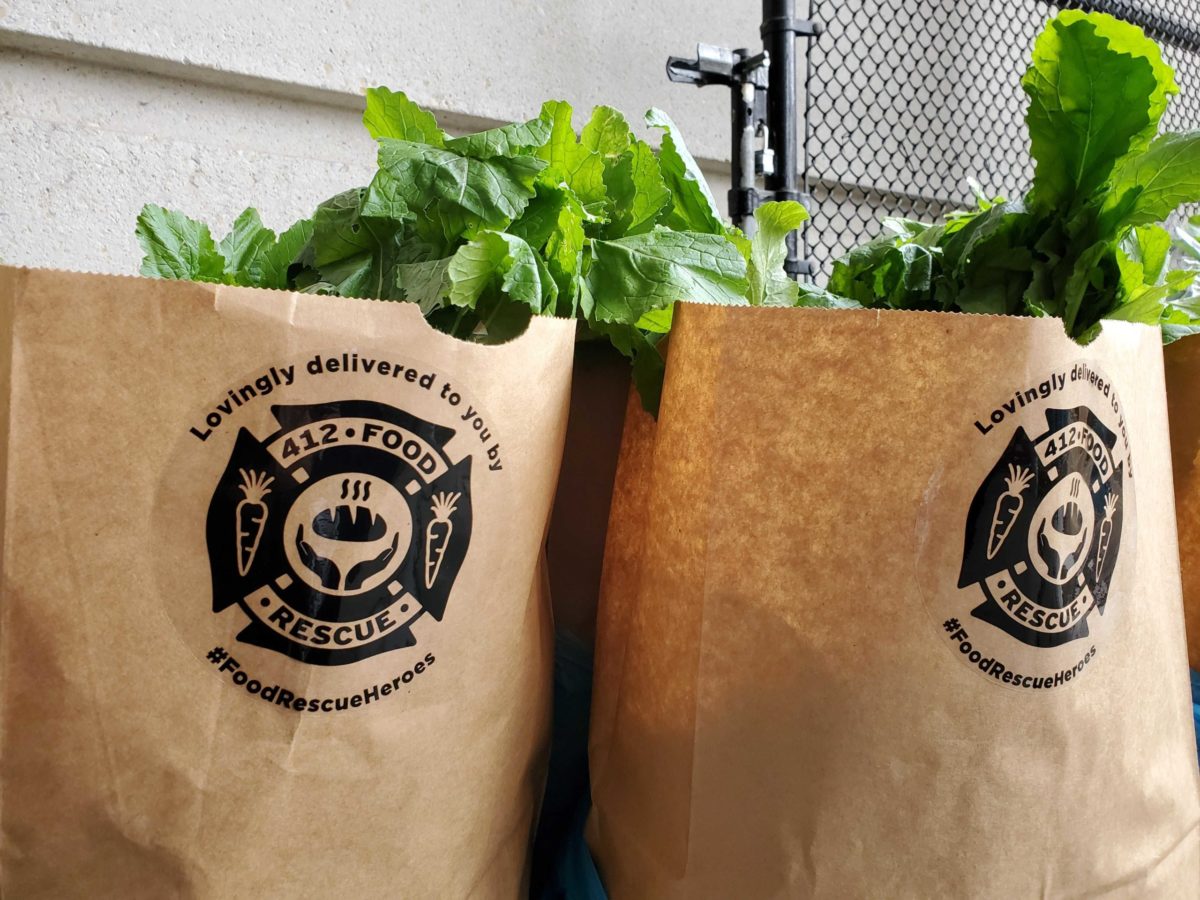“There’s no such thing as sales regions anymore,” joked George Cook, founder of crowdfunding startup Honeycomb Credit. “My region is my kitchen table.”
Soon after the work from home mandate went into place to stop the spread of COVID-19, Cook realized that physical location doesn’t matter as much as providing relief to small businesses across the country — and fast.
Originally servicing Pittsburgh and a few additional cities, Honeycomb Credit has “started to think more big picture and challenge some of those early assumptions,” Cook said.
He’s not alone. The pandemic has undoubtedly changed the way we live our day-to-day lives, but it has also pushed Pittsburgh-area startups to reconfigure the models that they built their businesses on. From breaking down geographic distance through digital interactions, to creating a new supply chain to provide relief to those most in need, each of these companies have nimbly pivoted to provide their services to a rapidly changing customer base in Pittsburgh, and beyond.
Connecting with food vulnerable populations
“Right now, we’re working the hardest we’ve ever worked,” said Leah Lizarondo, CEO and cofounder of 412 Food Rescue. The nonprofit, founded in 2015, combats food waste using an app (a recent recipient of Fast Company’s World Changing Ideas Awards) to mobilize volunteers to rescue perfectly usable, but unsellable food that would be wasted, and in turn deliver it to nonprofits who assist those experiencing food insecurity.
COVID-19 has disproportionately impacted lower-income and food insecure populations, explained Lizarondo, but the outbreak has kept many of the most vulnerable from getting food donations safely. With preexisting conditions, they might be unable to leave home to pick up food donations from nonprofits or food banks.
“They’re essentially trapped at home, and we have to bring the food to them for access,” Lizorando said.
The contagiousness of coronavirus threw a wrench in 412 Food Rescue’s operations, essentially stopping deliveries for several weeks as everyone adjusted to the new normal. With a small full-time team, 412 Food Rescue relies on its pool of volunteers to pick up and complete deliveries.
“We had to revise our pickup and delivery protocols,” Lizarondo said. “We established a no-contact protocol for all drivers, and asked all volunteer drivers 60 years and older to stay home.”
Even though they asked some volunteers to stay home, volunteer app downloads in March surged: “Over 1,200 people downloaded the app, looking for a way to help,” she said.
With an expanding and engaged volunteer base, 412 Food Rescue was able to ramp up its distribution, delivering for the first time directly to homes and families in need.
“Instead of dealing with 60 nonprofits to which we delivered, we’re dealing with thousands of people,” Lizarondo said.

(Photo courtesy of Richard Kelly Photography; image by Stephen Babcock)
Similar to DoorDash or other delivery services, volunteers pick up the rescued food from local restaurants or businesses, then bring it directly to the recipient’s homes. All volunteers making home deliveries wear masks and gloves and require a background check before they can get started.
While home delivery was always “in the pipeline,” coronavirus and social distancing measures shifted the timeline faster than anyone on the team anticipated. The change required some real muscle in the backend of the 412 Food Rescue app, and now the nonprofit needs more volunteers than ever — across the country. 412 Food Rescue has six partner cities at the moment, but the team plans to launch the Food Rescue Hero app nationwide this summer, making it possible for volunteers to rescue food anywhere.
Helping Main Street businesses, one loan at a time
As Main Street businesses temporarily closed their doors across the country, Honeycomb Credit knew it would have to act fast to help small business owners through the challenging time. The platform provides crowdfunded small business loans up to $250,000. Since its founding in 2017, Honeycomb Credit has helped more than 40 small businesses — in the Pittsburgh-area and beyond — run successful investment crowdfunding campaigns.
“The federal government’s unlocked $700 billion to help small businesses,” said Cook, the founder, referring to relief funds available through U.S. Small Business Administration funds like the Paycheck Protection Program. “And assuming that those programs all ran smoothly, that would put about $25,000 in the hands of every single small company. That’s only about one month of operating expenses for many ventures.”
Those numbers don’t even consider the challenges that smaller minority and women-owned businesses are facing when it comes to securing government funding, said Cook. And even with government assistance, many businesses are going to need more help.
To help address these issues, Honeycomb Credit had to think fast. First, the team reached out to current platform investors, asking if they supported changing the loan terms to offer payment relief for current Honeycomb Credit small business loans.
Within 72 hours, “we had about two-thirds of our investors respond, and 98% of them voted in favor of offering payment relief,” Cook explained. “It was a really heartwarming moment.”
To accommodate the influx of small businesses hoping to use the platform, Honeycomb streamlined its process to allow for remote onboarding in expanded markets around the country, as well as a number of flexible relief options provided. These changes have led to “about a 20x increase in the number of small businesses that are reaching out to us,” Cook said.

(Courtesy photo; image by Stephen Babcock)
Additionally, Honeycomb Credit launched its “Loyalty Bonds” program, a gift card subscription program for small businesses. “Gift cards are a great way to help businesses plug the financial gap right now, but when they start to reopen and all of their customers come running back into the store to use gift cards, it could actually create some really big cashflow disruption,” Cook said.
The loyalty bond program rolls out gift cards, with earned interest, over an extended period of time, serving as a customer loyalty and retention tool that allows businesses to stabilize in the post-COVID-19 climate.
Looking for ways to help their favorite small businesses, Honeycomb Credit has seen an uptick in investors since the pandemic. Investments have been “a little more cautious,” said Cook, “but we’re seeing new folks sign up every single day.”
Pre-COVID-19, Honeycomb Credit limited its business to operations in Cleveland, Detroit, Pittsburgh, Baltimore, and Philadelphia, but the outbreak made “the need for small business relief universal right now,” Cook said, and has led to rapid expansion with campaigns launching across the country.
The future of online learning
Coronavirus has closed all area universities and Pittsburgh Public Schools for the remainder of the school year, but it doesn’t mean that learning has to stop. As schools scramble to implement online and remote learning, language learning app Duolingo, Pittsburgh’s first billion-dollar tech startup, is already helping to meet the needs of students, teachers and those of across the globe who are just bored at home.
The East Liberty-based company of 200+ employees saw an immediate surge in app usage across the globe as a result of coronavirus, learning scientist Dr. Cindy Blanco wrote on Duolingo’s blog. The free language learning app doubled its user base in March after WHO declared COVID-19 a global pandemic.
Across the globe, more and more users are logging on to learn something while stuck at home. Learners seem to be choosing languages that could lead to economic opportunity — Spanish learning in the US has seen a 5% bump since March, and Spanish and French lessons in the UK are up by 6 and 10%, respectively.
As we all adjust to the “new normal,” Duolingo is taking steps to make sure elearning doesn’t fall by the wayside. When the company noticed 30% of new users were using the app in lieu of class work or school, Duolingo released an educator and parent teaching guide to help bring the classroom to home.
Making it safe to return to the workplace
As the workforce adjusts to the new normal, VIT Initiative is creating solutions to monitor employee health and detect early COVID-19 symptoms. Founded in 2015, the company has always been focused on workplace safety and health: Pre-coronavirus, the team developed wearables to help reduce strain and sprain injuries in warehouses and distribution centers.
For founder Andy Chan and his team, it’s been a case of rolling with the punches. Just before the shelter in place orders went into effect, VIT Initiative was in the process of opening a secondary satellite office in San Francisco for west coast travel. Those plans have been delayed, and the team is still in Pittsburgh for the time being.
The pandemic has been a lesson in using what they already have to operate safely during COVID-19. Chan has been working to help develop solutions that prevent the spread of the virus in workplaces when teams return to busy warehouses and facilities in full force.
Now, VIT is leveraging the tech it already implements in workplaces to prevent the spread of COVID-19.
“We looked at our current tech and realized we had all this real estate we weren’t using on the tablet kiosk we deploy at client locations — I was sure we could do something with that,” said Chan. “We’ve been working to develop thermal cameras that attach onto the tablet for thermal imaging.”
Using machine learning and thermal imaging cameras, the software can detect faces and give them a highly accurate temperature reading that deters sick employees from entering the workplace.
The cameras can catch high fevers, an early symptom of COVID-19, but “they’re just a screening tool,” reminded Chan. They don’t prevent the spread of coronavirus, but they can help detect early signs of it, keeping a potentially sick employee from entering the workplace.

(Courtesy photo; image by Stephen Babcock)
Additionally, VIT created an early detection symptom tracker — a system that Chan calls a “safety passport.” The mobile-based system checks in employees as they return to the office. Employees answer a few questions about their symptoms and health before getting cleared to enter the workplace.
The challenges around returning to work during the time of social distancing have shone a spotlight on the workplace safety industry, and VIT is rising to the challenge to meet the many requests for new features pouring in from new and existing clients. Hoping once again to use what they already have to benefit workplaces, VIT is exploring ways to use its wearables to help remind employees to maintain social distance and track contact with high-touch areas in the workplace.
COVID-19 may change the way we do business across Pittsburgh, but it hasn’t changed the entrepreneurial spirit that thrives among its startups.
Join our growing Slack community
Join 5,000 tech professionals and entrepreneurs in our community Slack today!
Donate to the Journalism Fund
Your support powers our independent journalism. Unlike most business-media outlets, we don’t have a paywall. Instead, we count on your personal and organizational contributions.

National AI safety group and CHIPS for America at risk with latest Trump administration firings

How AI is infiltrating labor union contracts, in Pittsburgh and beyond

How women can succeed in male-dominated trades like robotics, according to one worker who’s done it



